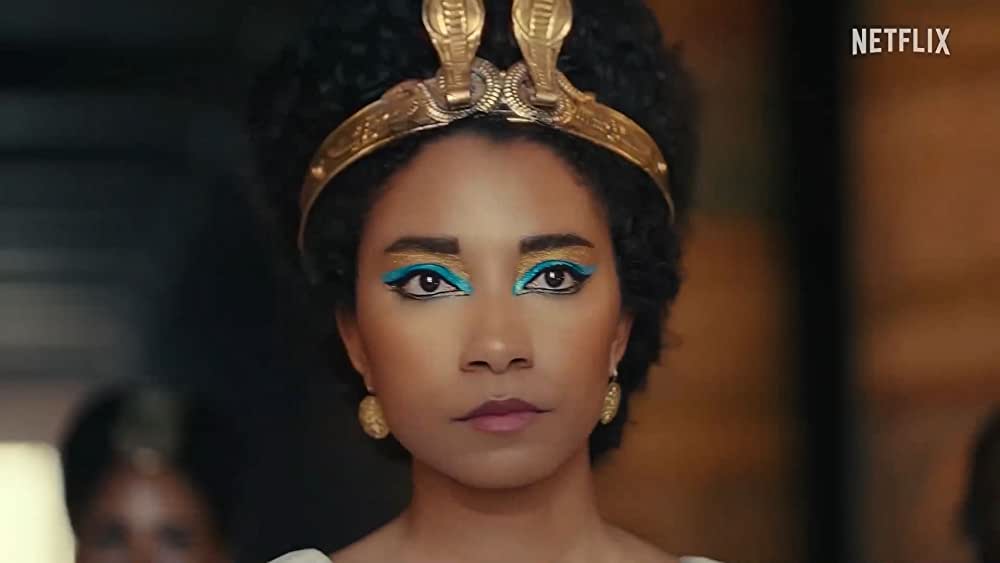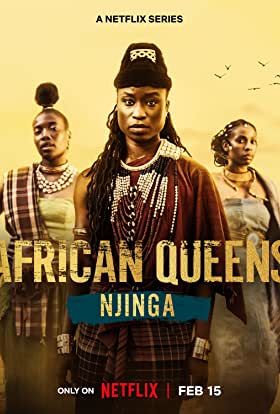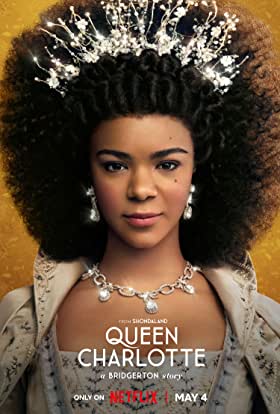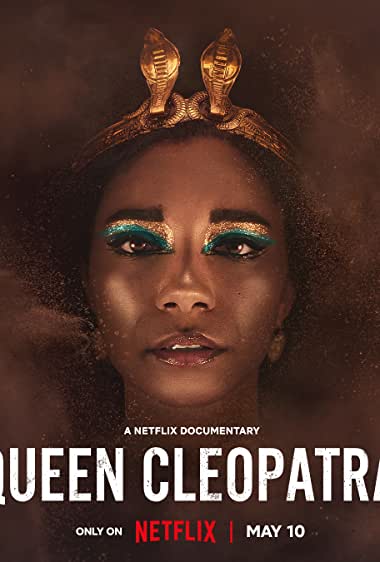|

There
are plenty of things for Africans to be proud of, without
trying to equal up the years of Hollywood whitewashing of
some historic characters. Though, generally, when making a
film that portrays a geographical location essential to a
plot, Hollywood tends to get it right. For example, Tarzan,
the fictional character is set in Africa, with Africans, not
white people as natives, with a white person living in their
midst - raised by gorillas (improbable. The same applies to the fictional
character, Indiana Jones. His adventures involve native
Indians in India and South America, and Chinese people in
China - represented (in the main) by actors of Indian and
Chinese ancestry. For sure, humans developed in Tanzania,
plain from the fossil records and DNA analysis. But from
there, Homo Sapiens Sapiens spread around the world,
adapting to specific geographical locations, with facial
features and skin pigmentation to match incoming solar
radiation, and years of naturally occurring species
variations (per Charles Darwin), that gives humans their
cultural differences and biodiversity. The clue therefore,
is in the pigmentation and eye colour. Deprived of harsh
sunshine, humans tend to white skin, with significant
divergence from dark eye pigmentation, as a requirement to
fend off damage from ultra-violet rays. Explaining why
Nordic races have blonde hair and blue eyes, with fair skin
- as their signature coloration. Common sense dictates, that
in living in Egypt for a sufficient number of years, those human
inhabitants will have evolved by natural selection, a look
and features to create a culture, including language
differences. This was so, up to
the time when transport and migration became affordable to
the masses. Except for the importation of labour from other
locations, such as in slave trading. Which, will introduce coloration
of those other locations, artificially quickly, into their
new geographical location, then via interbreeding, to
provide race mixing. Concerning Cleopatra
VII Philopator, her father was Greek-Macedonian, from
South-East Europe, so of relatively light skin, including in
the equation, that the Romans conquered Macedonia (168-148
BC). We
do not know (for sure) the identity of the Pharaoh Queen's
mother, but she was more likely to have been
Macedonian-Greek-Roman than black African, despite Nubian
labour importation. Partly explaining her
extraordinary language skills. Not ruling out the African
possibility, just calculating probability on odds. If you
can shed some informed light on the subject, we would be
much obliged and remain to be enlightened : )
ENCYCLOPEDIA BRITANNICA
Afrocentrism, also called Africentrism, cultural and political movement whose mainly African American adherents regard themselves and all other Blacks as syncretic Africans and believe that their worldview should positively reflect traditional African values. The terms Afrocentrism, Afrocology, and Afrocentricity were coined in the 1980s by the African American scholar and activist Molefi Asante.
Beliefs
Afrocentrism argues that for centuries Africans and other nonwhites have been dominated, through slavery and colonization, by Europeans, and that European culture is at best
irrelevant - and at worst diametrically opposed - to efforts by non-Europeans to achieve self-determination. For this reason, according to Afrocentrism, people of African descent need to develop an appreciation of the achievements of traditional African civilizations; indeed, they need to articulate their own history and their own system of values.
According to Afrocentrism, African history and culture began in ancient Egypt, which was the birthplace of world civilization. Egypt presided over a unified Black Africa until its ideas and technologies were stolen and its record of accomplishments obscured by Europeans. Afrocentrists assert that traditional African culture contrasts with European culture in being more informed by its history (“circular” rather than “linear”); more cooperative; more intuitive; and more closely integrated with the spiritual world of gods and ghosts. Renewed attention to this culture, they argue, can benefit African Americans psychologically by reminding them that their own culture, which was long devalued by Americans of European descent, has a rich and ancient heritage. In addition to emphasizing the past, Afrocentrism encourages the preservation and elevation of contemporary African American culture as manifested in language, cuisine, music, dance, and clothing.
History
Afrocentrism was influenced by several earlier Black nationalist movements, including Ethiopianism and Pan-Africanism. The latter became a major presence in the United States and elsewhere with the emergence of the Jamaican activist Marcus Garvey, who promoted the idea of an African diaspora and called for a separate African state for Black Americans. Garvey’s bitter enemy, W.E.B. Du Bois, who helped to found the integration-minded National Association for the Advancement of Colored People) in 1909, was also interested in Pan-Africanism and organized world conferences on the subject from 1919 to 1927. Other antecedents included the Negritude literary movement, launched in France in the 1930s by Francophone African intellectuals such as Léopold Senghor, and the Nation of Islam, whose
leaders - including Elijah Muhammad and Malcolm X - preached not only the need for a Black homeland but also the cultural and genetic superiority of Blacks.
Equally important to Afrocentrism were figures such as the African American scholar Maulana Karenga, whose work resulted in the creation of the Afrocentric holiday of Kwanzaa in 1966; the Senegalese scientist Cheikh Anta Diop, who wrote about the cultural unity of Africa, the African nature of Egyptian civilization, and the “theft” of African civilization by Europeans; and the African American historian Carter G. Woodson, who emphasized the teaching of African history as a way of counteracting feelings of inferiority inculcated in Black Americans through centuries of
(disgraceful) subordination by whites.
Afrocentrism gained significant legitimacy in the United States from the 1960s as a result of the civil rights movement, the multicultural movement, and the immigration of large numbers of nonwhites. Its following increased dramatically during the 1980s, when many African Americans felt alienated from the “conservative revolution” of President Ronald Reagan but were simultaneously attracted by the conservatives’ call for a return to traditional values. The Afrocentrists’ complicated reaction to the conservative revival both reflected and reinforced conservative elements in Afrocentric thinking.
Criticism of Afrocentrism
The central claims of Afrocentrism were prominently set forth in a controversial book, Black Athena: The Afroasiatic Roots of Classical Civilization, 2 vol. (1987–91), by white historian Martin Bernal. Since that time, Afrocentrism has encountered significant opposition from mainstream scholars who charge it with historical inaccuracy, scholarly ineptitude, and racism. In her book Not Out of Africa: How Afrocentrism Became an Excuse to Teach Myth as History (1996), the American classicist Mary Lefkowitz attempted to refute most of the assertions made by Bernal, Diop, and others.
Public disputes between Lefkowitz and Afrocentrist Tony Martin created strife between Black and Jewish intellectuals and made Afrocentrism vulnerable to charges of anti-Semitism. Critics further have argued that Afrocentrism’s search for exclusively African values sometimes comes perilously close to reproducing racial stereotypes. The movement’s followers maintain that Afrocentrism remains a valuable worldview and a spur to cultural and political activism by African Americans.



African
chiefs and rulers, arguably, began military strategy, such
as King Cetshwayo (Of Mlambongwenya born in 1826) and Shaka Zulu,
half brothers. Zulu chiefs who took on the British, during
the colonial building period of the British Empire. Hence,
an impressive time in the development of mankind. But what
is not so impressive perhaps, is the Queen Charlotte
portrayal, this is historically inaccurate, undermining -
and potentially harmful to the education of students of times past.
CAMBRIDGE DICTIONARY
Afrocentrism - noun (also Afro-centrism) is an educational movement (= a set of aims and ideas) that gives central importance to the culture and history of Africa and people from Africa:
Proponents of Afrocentrism say that the contributions of Black African people have been downplayed or discredited as part of the legacy of
colonialism and
slavery.
- They wore African-inspired prints and expressed an interest in Afrocentrism.
Fewer examples
- At that time, the civil-rights movement was brewing and notions of Afrocentrism were just gaining currency.
-
Afrocentrism is an approach to the study of world history that focuses on the history of people of recent
African
descent.
-
Afrocentrism seeks to correct what it sees as mistakes and ideas perpetuated by the racist philosophical underpinnings of western academic disciplines.
-
He shifted emphasis away from gangsta nihilism toward the light of Afro-centrism, self-love and a unified hip-hop culture.
QUORA
Alfred of Wessex - Author has 1.8K answers and 1.1M answer views . 2y
Afrocentrism is nothing but a racist pseudohistory that is based on myth more than actual history. It is about making grandiose claims to boost their egos not backed by any evidence. For example, they claim that black people were the first people in the Americas which has been discredited and debunked. They claim the Israelites were black. Some Afrocentrics claim that all European rulers were black.
So no Afrocentrism is not proven by any facts, yes there are civilizations in Africa but most of their other claims are based on conspiracy theories and pseudoscience. The idea behind Afrocentrism is mostly black supremacy.
Ahmed Fayed - Lives in Cairo Upvoted by Menna El Gendy, lives in Egypt (2003-present) . 3y
Related: How do Egyptians feel about afrocentrism?
I personally think that it is a mythology that is racist, reactionary, essentially therapeutic and is eurocentrism in blackface. A pseudohistory that is grounded in identity politics and myth rather than scholarship, claims that are based on gross over-generalizations and using factually incorrect material
Afrocentrism's prime goal was to encourage black nationalism and ethnic pride in order to effectively combat the destructive consequences of cultural and universal racism.
Anyway, I believe that Egyptians feel that Afrocentrism is about as stupid as Eurocentrism. Though that kind of identity politics is often found in the U.S and doesn't really concern your average Egyptian (as Egyptians do not endure an identity crisis). If more
Egyptians are exposed to it, they will tell you it is ridiculous, with some laughter in the head lol.
Walter Smyth - Fascinated by ancient history and geneticsAuthor has 14K answers and 23.9M answer views . 2y
Afrocentrism is a pseudo history not based on reality. They claim all civilizations were founded by black Africans. Genetics and ancient remains debunked their nonsense. They claim Africans were the first people in the Americas. Once again genetics and no evidence debunked their nonsense:
Afrocentrics try to boost their inferiority complex by stealing other peoples history. They photoshop and lie about ancient artifacts.
AFROCENTRISM MORE MYTH THAN HISTORY, SCHOLAR SAYS
lack Americans who claim Egypt was a black civilization and the progenitor of Western civilization have created a "therapeutic mythology" but they aren't talking about history, says UC Davis history professor Clarence E. Walker.
In his new book, "We Can't Go Home Again: An Argument About Afrocentrism," historian Walker critiques Afrocentrism, which has been a popular movement in schools and universities as well as black communities over the past four decades.
"The scholars who call themselves Afrocentrists have not written history in the strictest sense of the term; what they have produced is a therapeutic mythology designed to restore the self-esteem of black Americans by creating a past that never was," he writes.
Walker, who specializes in the study of black history, the sociology of American race relations and
American popular culture, points out that Afrocentrism is silent about the context of slavery and the
slave
trade. He says most of the blacks taken to the Americas had been slaves in
Africa or occupied some other dependent or subordinate position in African society.
"Tribalism did not prevent Africans from selling members of their own tribes in order to satisfy the demand for slaves in the Americas," Walker writes.
Walker says he is especially disturbed by Afrocentrism because of its dangerous political implications.
"Within the context of contemporary black political and cultural politics, Afrocentrism constitutes a form of totalitarian groupthink," he says.
Media contacts:
-- Clarence E. Walker, History, (530) 752-0779, cewalker@ucdavis.edu
-- Susanne Rockwell, News Service, (530) 752-9841, sgrockwell@ucdavis.edu
Media Resources: Susanne Rockwell, Web and new media editor, (530) 752-2542, sgrockwell@ucdavis.edu
REFERENCES
https://www.ucdavis.edu/news/afrocentrism-more-myth-history-scholar-says
https://www.quora.com/What-is-Afrocentrism-Is-it-something-proved-by-facts-or-more-of-a-conspiracy-theory-What-s-the-idea-behind-it
https://www.britannica.com/event/Afrocentrism
|



